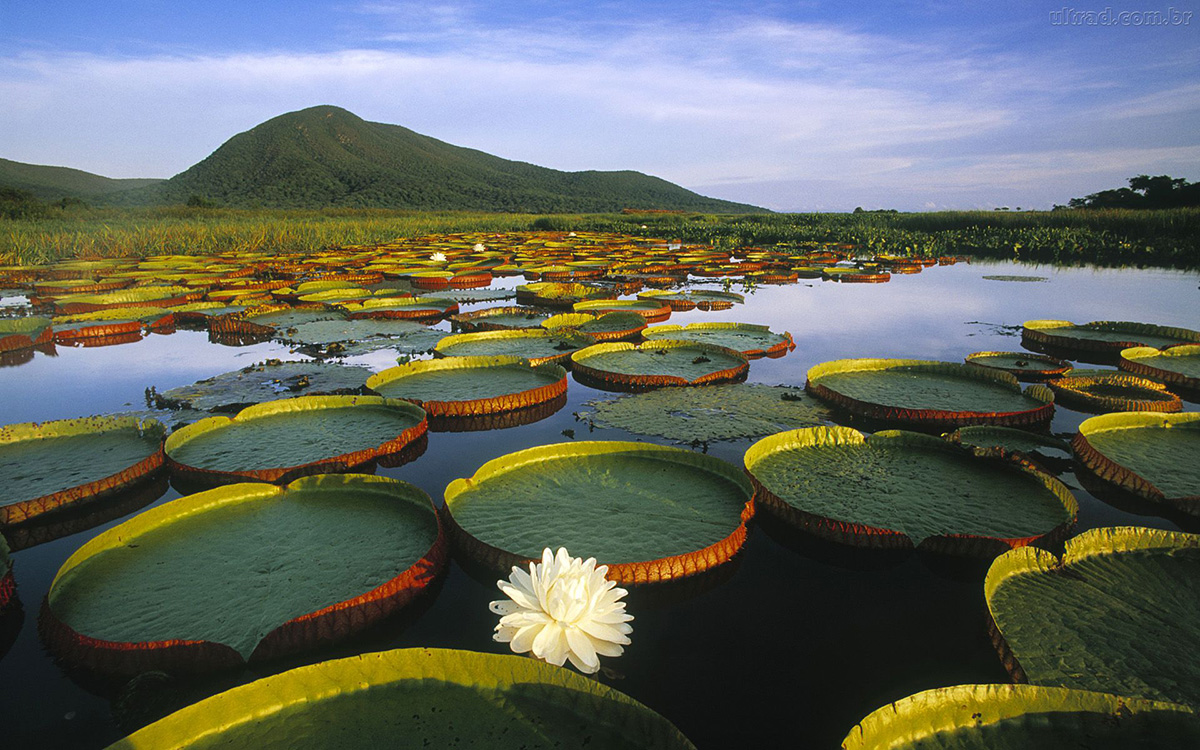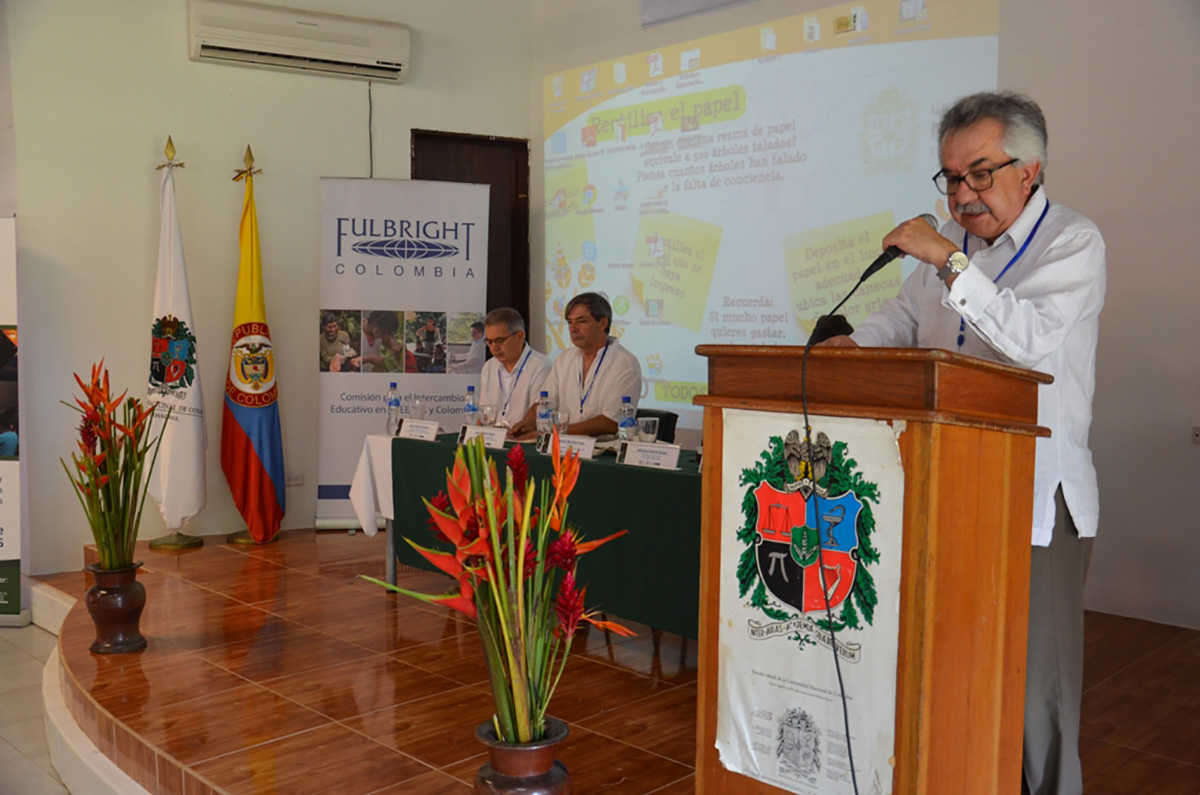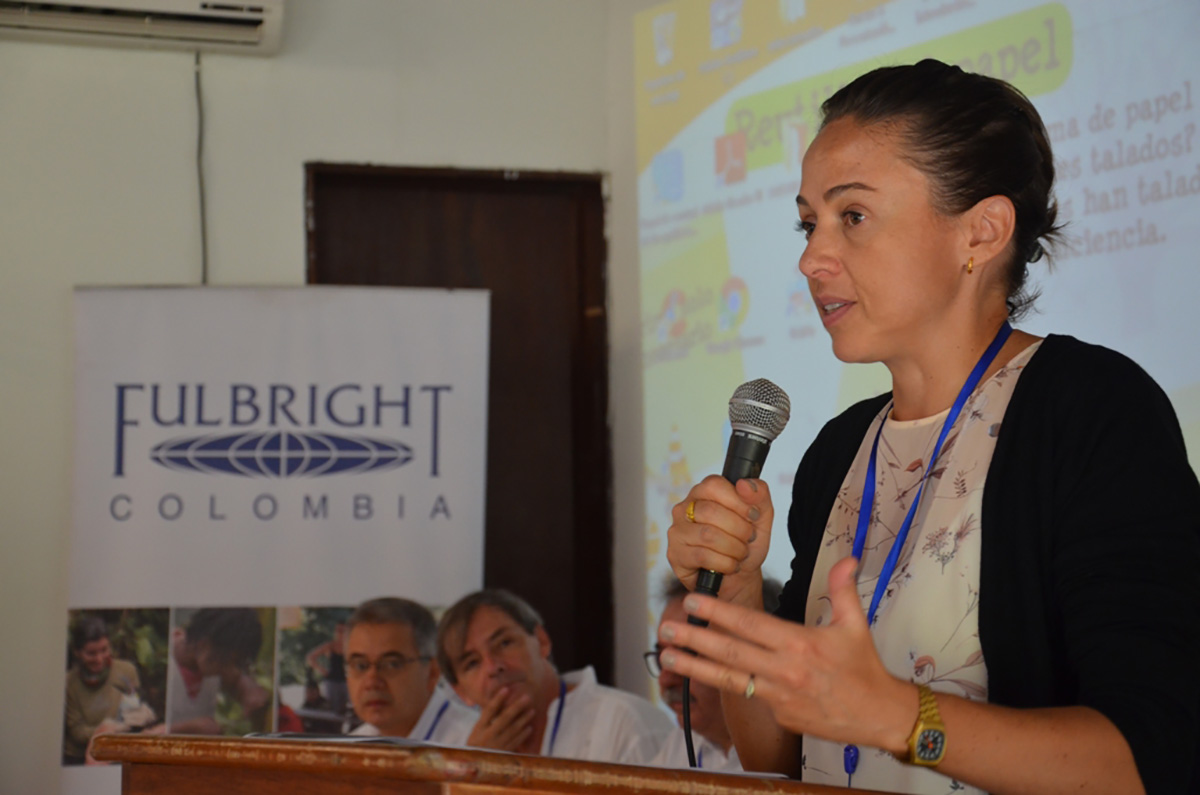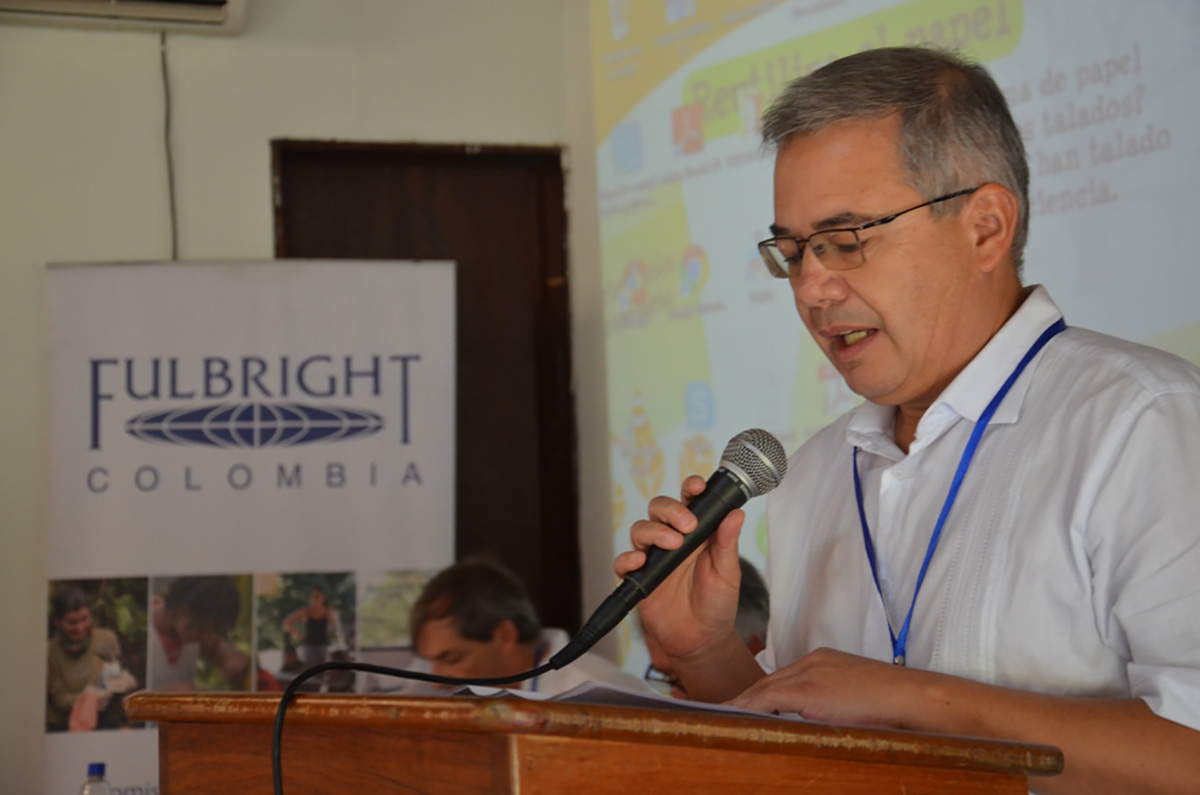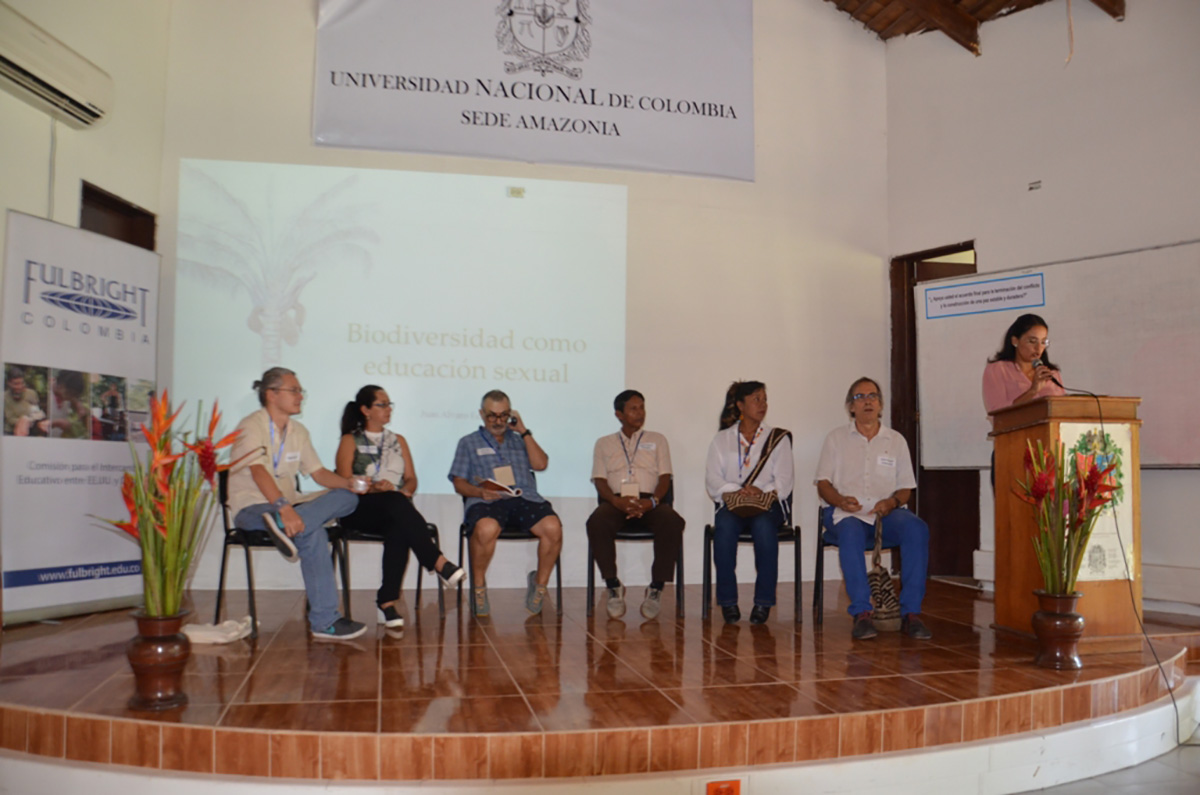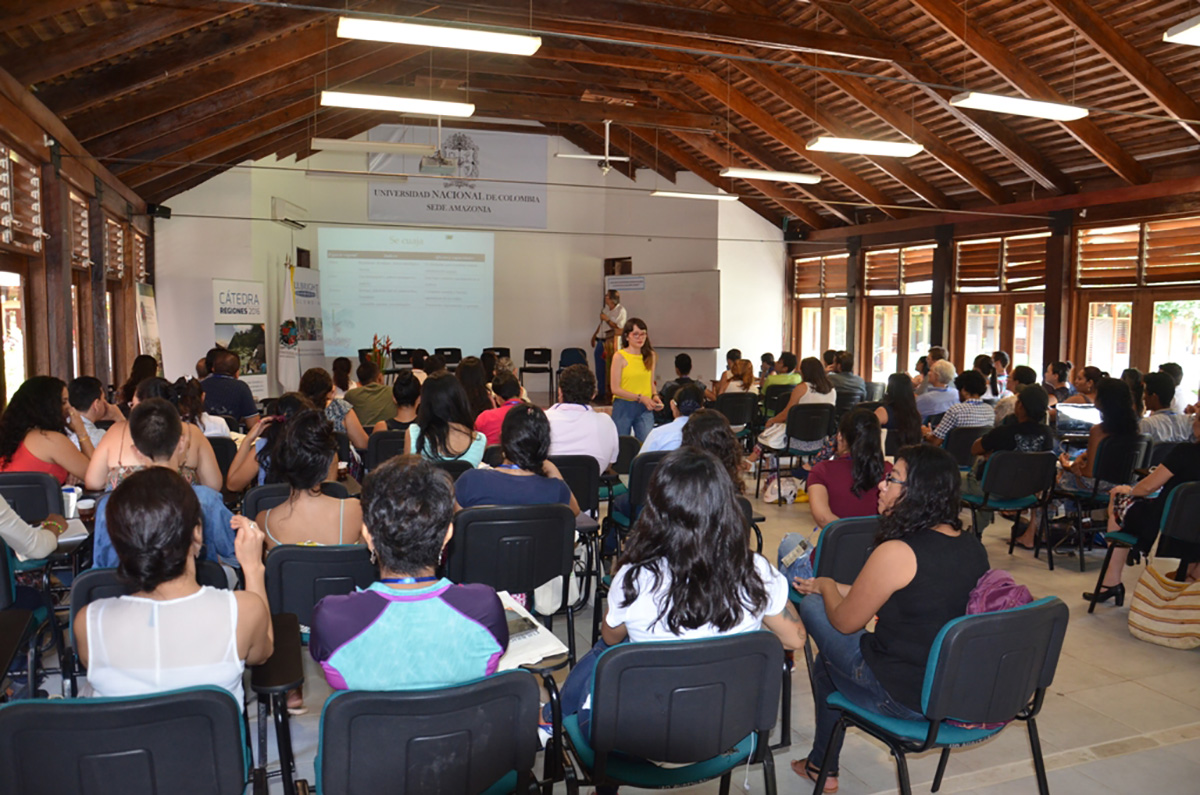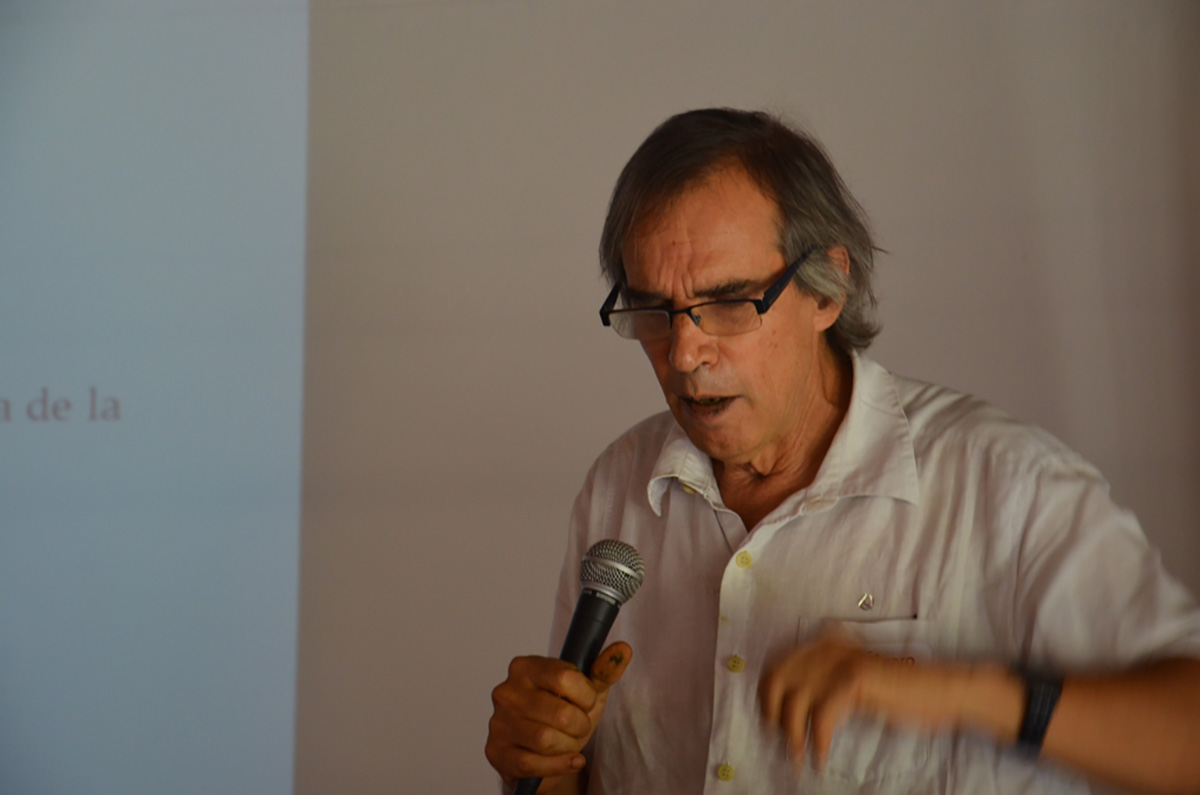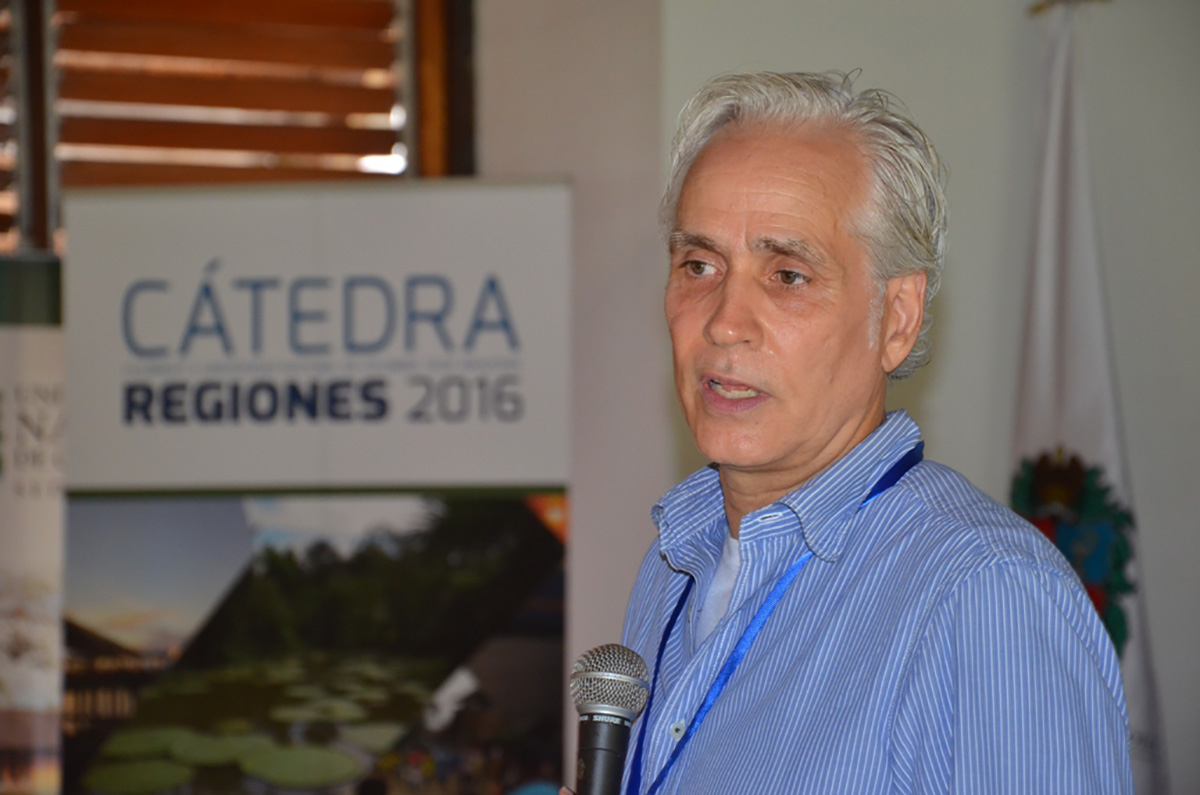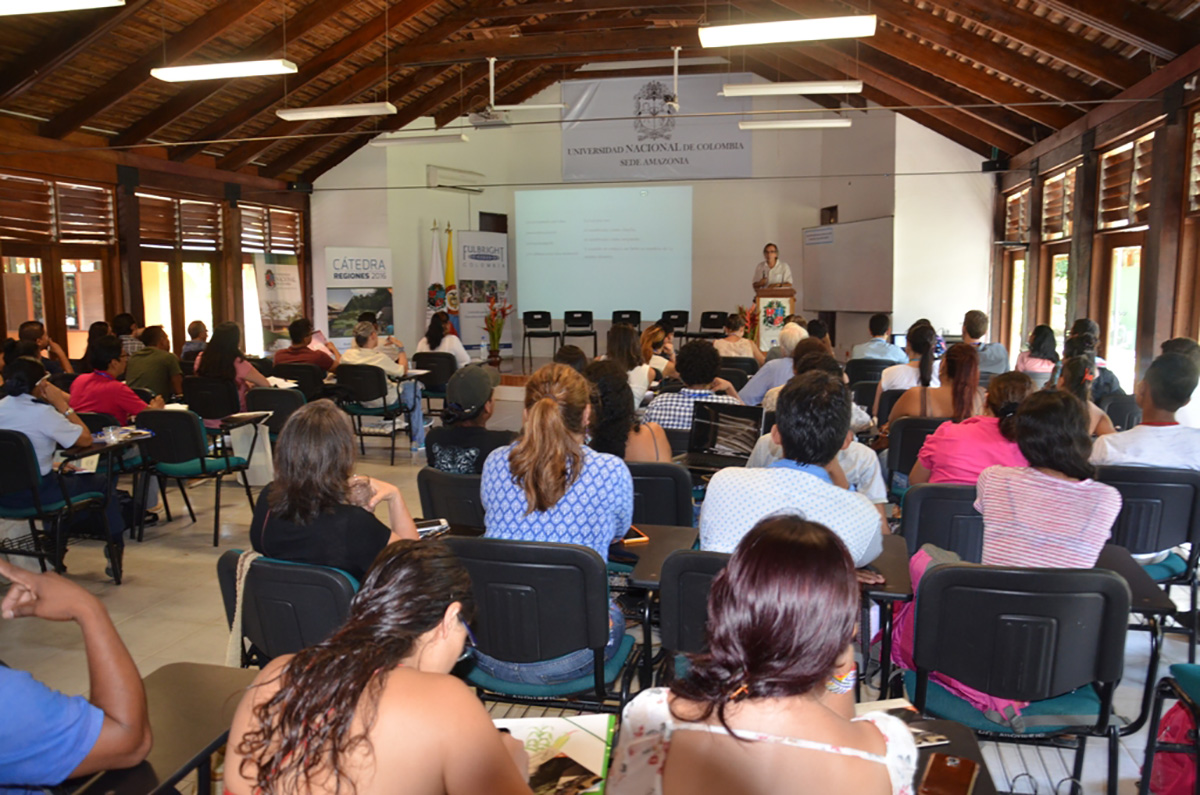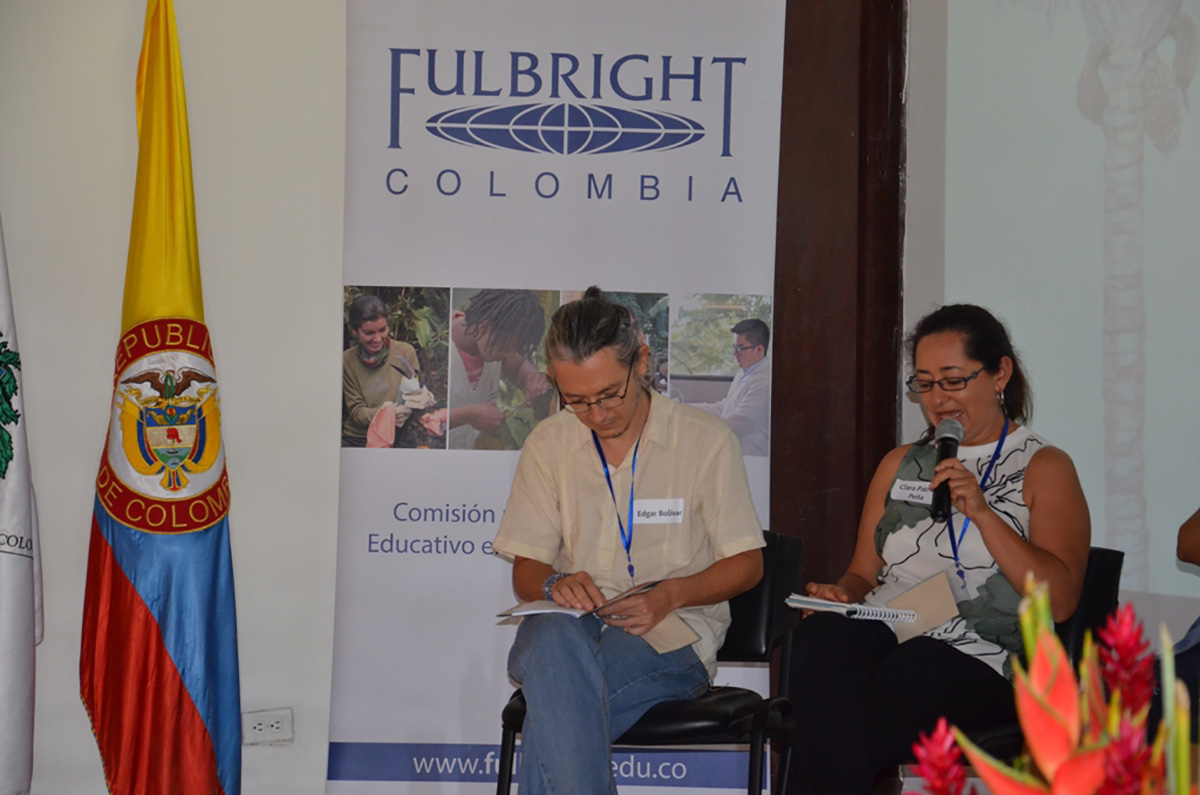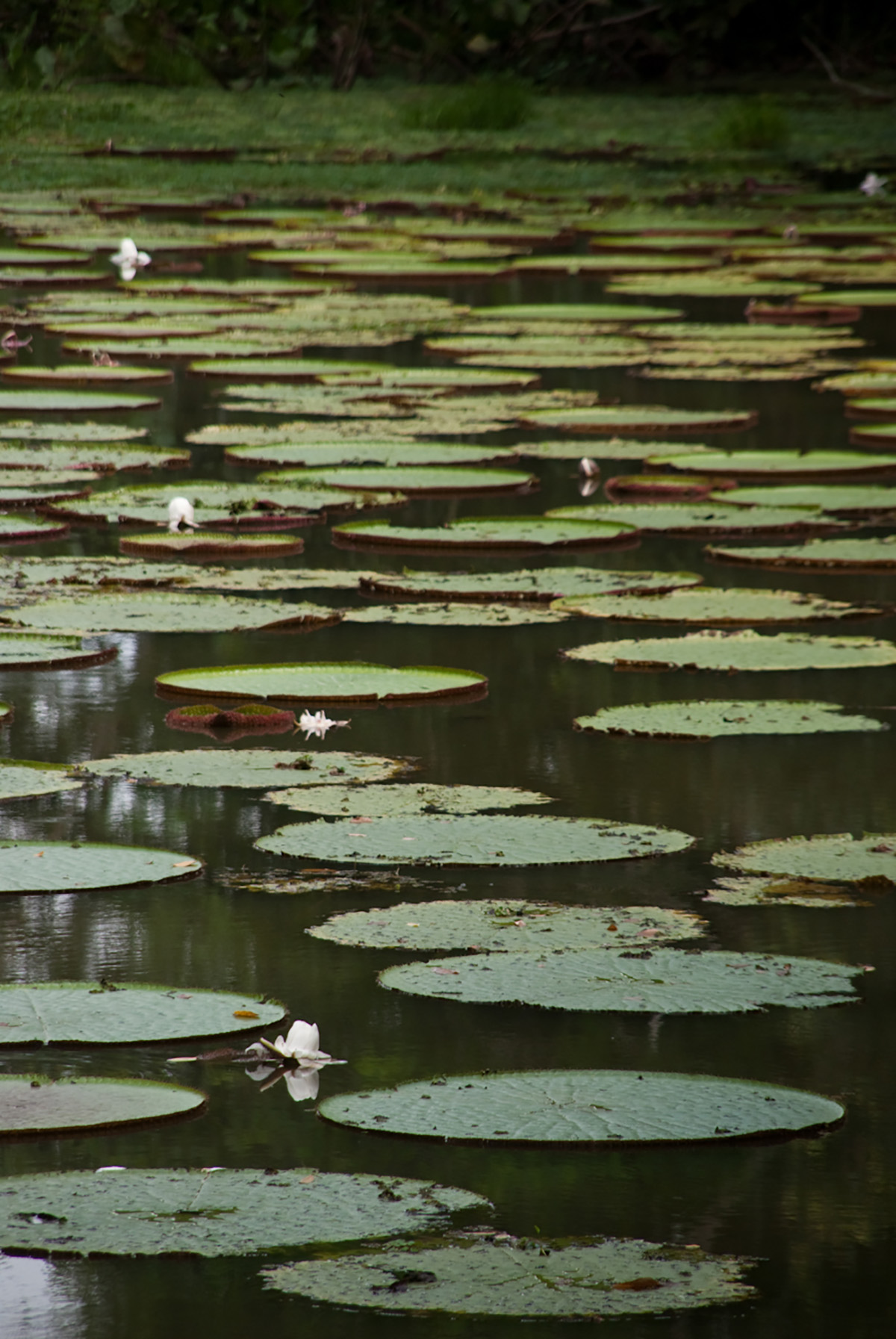The results of the research were provided by UNal Professor Juan Álvaro Echeverri, who also announced the results will be published in the book Sal de Vida (Salt of Life).
"There are reports of mineral salts in Africa and Oceania; this project carried out with support from the Gaia Foundation is the first of its kind performed in the continent," said Echeverri.
Indian knowledge biodiversity and climate change were also some of the topics during the Fulbright lecture entitled, "Biodiversity, climate change and sustainable development," organized by Fulbright Colombia with the support of the UNal Foreign Affairs Directorate.
UNal Rector Professor Ignacio Mantilla; the Executive Director of Fullbright Colombia Adriana Gaviria Duque, and UNal-Amazonia Director Professor John Charles Donato participated of the event. Former scholarship owners and American professors whom are in the region developing research within the American research scholarship program were also participants of the academic event.
Wood changes lifestyles
Another topic of the lecture was non-timber forest extraction and marketing of the Brazilian amazon.
Then UNal-Amazonia "Fulbright U.S. Scholar," California State University Professor Richard Wallace said his work has been carried out in the state of Acre (Brazil), near the border with Peru and Bolivia.
One of the aspects Professor Wallace noticed is the change in the economy and lifestyle of the families devoted to rubber extraction. According to Wallace with the years and the lack of opportunities working in the rubber extraction industry, families are now being devoted to cattle farming and agriculture.
"This led to leaving aside a 10-year project which purpose was to promote artisanal rubber extraction forms and manufacturing rubber products", said Wallace.
Forests changes
Another research project which the invited researchers showcased was that of Florida International University Professor Kenneth Feeley regarding the effects of climate change on Andean forests and the amazon jungle.
According to Feely during the latest years, there have been changes in the Colombian forests and jungles as a result of climate change.
His research has discovered that some products such as potato and coffee are now being produced at greater heights.
"Before these products were cropped at 1,500 to 2,000 mts. (4,920 to 6,560 ft.) now they are being produced at 3,000 mts. (9,849 ft.) which concerns the scientific community as global warming is greater each day and the space for many products is becoming increasingly limited," said Feeley.
For this reason, he also mentioned they are carrying out another project focused on new cropping methods below 2,500 mt (8,200 ft.) to help reestablish forests and jungles which have suffered from the intervention of humans.
Regarding this lecture the Rector of UNal said this project was very significant to continue to strengthen the ties between Fulbright and the Universidad Nacional de Colombia, enabling professors and students to have access to scholarships and exchange opportunities as that of Professor Wallace.
As agreed by the Fulbright Colombia Director, who emphasized the importance of the Amazon for UNal. In fact, 8 current Fulbright scholarships owners are developing research in this area of the country.
 Correo Electrónico
Correo Electrónico
 DNINFOA - SIA
DNINFOA - SIA
 Bibliotecas
Bibliotecas
 Convocatorias
Convocatorias
 Identidad UNAL
Identidad UNAL



